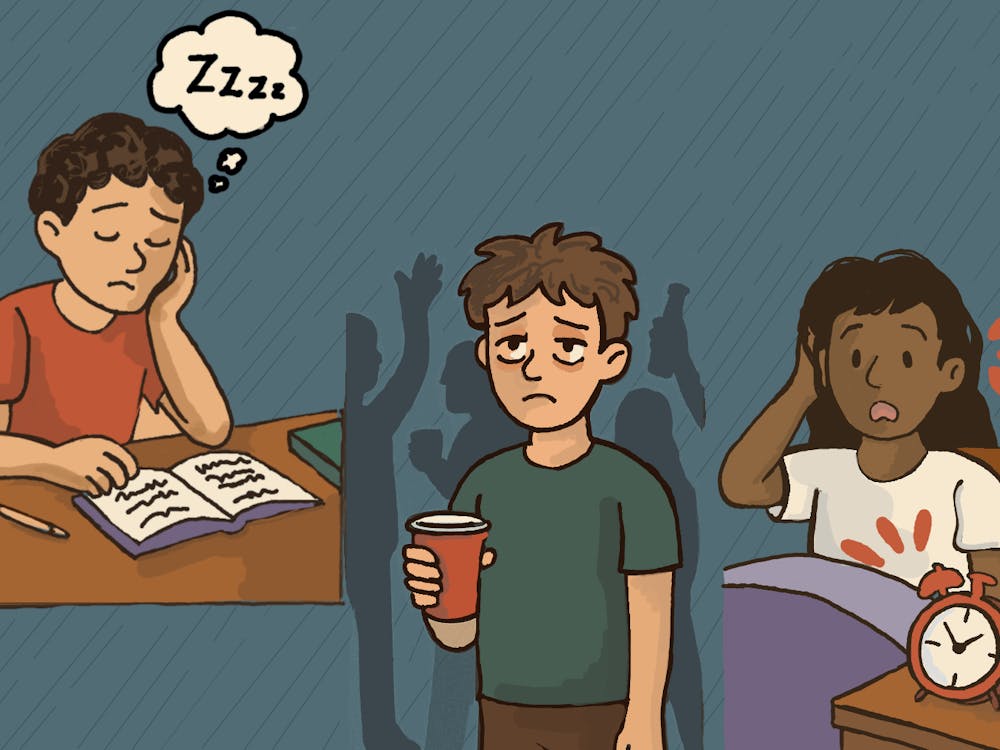- I know that my friend has liked me for a long time. I’ve had a lot of mixed feelings about it and have probably given him some mixed signals as a result — we’ve kissed. I realize I don’t see him as more than a friend right now, but I’m scared to make anything awkward or risk losing him. How do I tell him this without hurting his feelings?
This is a really tricky situation for many reasons. He is a friend and you do not want to lose your friendship with him. That is scary. It is also natural that you would want to make your friend happy, but what he wants might be at odds with your happiness. That can be confusing.
Unfortunately, no matter how kindly you approach the situation, he will likely be hurt. If he wants to be more than just friends with you, it is likely that he would be disappointed that you do not feel the same. But that does not mean the friendship is irreparable. Relationships — like people — are resilient. Have faith that though it may be awkward for a bit, your friendship can recover and continue.
It is fair that because this friendship means a lot to you, you do not want to risk making anything awkward or losing him, which could also result from hooking up or dating. What are the reasons you do not see him romantically, and are there any that he would agree with if you shared them? For example, if you are not looking for a relationship, it might be hard to occupy a situationship — an in-between relationship — with someone you already care about and know well.
Also, given your history, hooking up casually might be unrealistic or cause more opportunity for someone to get hurt, which could be detrimental to your friendship long-term. Both of these are factors that you could cite and prompt him to consider, which might present a more realistic view of your relationship.
It could soften the blow to make your reasons feel more circumstantial or personal to you, rather than about him. To stay positive, keep the emphasis on how you value him in your life, how you imagine having him in your life for a long time and how you do not want to do something that would jeopardize that. You could acknowledge that your mixed feelings are a result of you reconciling how much you care about him with what you really want right now.
Ultimately though, maybe you simply do not have romantic feelings for him, and you cannot explain why or why not. Acknowledge that you do not have to. You cannot change how you feel, and you do not need to apologize for that or justify why you do not feel the same. Have compassion for his feelings and express that you value them. But do not forget to have compassion for yourself and value your intuition as well. If he really cares about you, he will still want you in his life too — even if that is not in the context he had hoped for.
- Do you have any suggestions for how to incorporate time for yourself when you're in a relationship? I tend to find that I spend my downtime with my significant other when sometimes I really wish that I could just be by myself.
No matter how much you love spending time with your significant other, every person needs alone time to recharge, because time alone means time alone with your thoughts. If you are never alone, you miss that opportunity to listen to yourself and to check in.
“Needing space” has a negative connotation, one that triggers the alarm bells of breaking up. It is important to establish or acknowledge that a need for your own time or space is not something for a partner to take personally, nor is it symptomatic of there being anything wrong.
Maybe you can incorporate some activities or spaces that could make you physically unavailable for a window of time. What if you did a yoga — or any workout — class twice a week, where you go alone and take an hour to breathe and be with yourself? Without even saying you need space, you could express to your significant other how important or helpful this time is for you, and how valuable it is to have a time that is completely your own.
Or maybe, it is a walk before or after class, where you put your headphones in and listen to a podcast. Again, you could say to your significant other how much you appreciate this time when you get to listen to a new episode or have an hour in which you do not have to talk to anyone.
You have expressed that you “wish” you could just be by yourself sometimes, but I want you to ask yourself why you feel that you can not be. Is this a pressure you are putting on yourself, an expectation to always be available? How would it impact your relationship if you were less available during the day or evening hours and put your phone away more frequently? Is one person in the relationship more dependent on the other, or are you anticipating sensitivity around the issue of space that might not actually be there?
Ask yourself these questions before deciding whether this is a conversation you need to have with your partner — or one you need to have with yourself. The latter conversation, unsurprisingly, will require alone time.
Heart to Heart is a regular column written by Life columnists Katherine Schwartz and Jenna Onetto. To submit a question, fill out this form and our columnists will do their best to address it in an upcoming issue.







